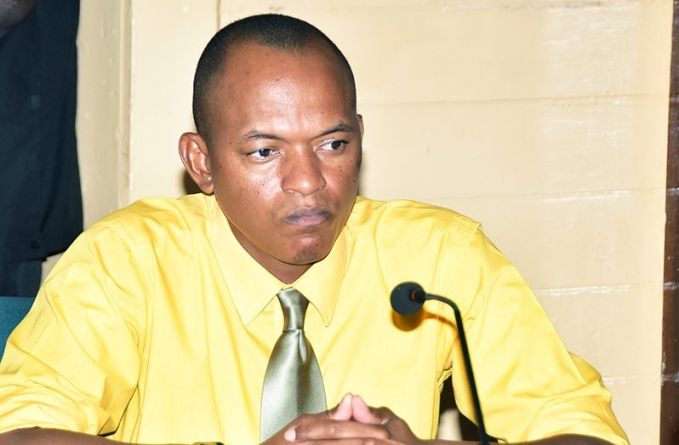Detentions beyond statutory period must not be allowed
Dear Editor,
It is either we are a country of laws or we are not! Over the last few months we have seen persons detained by the Guyana Police Force (GPF) in excess of the seventy-two hours required by law and without the permission of the High Court. It is the Constitution which addresses the manner in which a person might be lawfully detained by the police. Bradley and King (2007) describes a Constitution as “…having a special legal sanctity which set out the framework and the principal functions of the organs of governments within the state and declares the principles by which those organs must operate.”
It was Bharrat Jagdeo who assented to Act No. 10 of 2003 Constitution (Amendment) (No.2) Act 2003 Arrangement of Articles, in which lawful detention moved from forty-eight to seventy-two hours. It seems that even with the additional time granted to the authorities they are still running afoul of the law and denying the rights of citizens they swore to serve and protect. This very amendment Act had its genesis in the Constitution (Amendment) (No.5.) Bill 2000 – Bill No.18/2000 and it was then Minister Reepu Daman Persaud of the PPP who ‘referred to the fact of a person having a right of release after being arrested’. His words have grown cold as the grave, while the spirit and letter of the law are today transgressed and trampled with impunity; unheard of a few short months ago when we each enjoyed The Good Life.
It was the then Honourable Attorney General and Minister of Legal Affairs (who served earlier as GECOM Chairman for the vitiated 1997 General and Regional Elections) who in speaking to the substance and merit of the Act said it represented “a major overhaul of the fundamental rights provision of our Constitution, some of the principles and basis of the political, social, economical system…” which guides our nation. It would seem then in going after political foes and social enemies we have forgotten what was the intention of Parliament.
In addition to what we are witnessing, we see this feature of detaining citizens and then seemingly proceeding to build a case against them. Legal luminaries like K A Juman-Yassin’s voices once raged publicly, “I do not have a problem with the police investigating and pushing for information in order to solve crimes but it must not be done in a manner whereby the civil rights of a citizen will be trampled. Our police must do more investigating and rely on forensics in order to gain success and stop relying on locking up persons in the hope of getting information and confessions. The law currently is that the police can arrest and or detain a person for 72 hours and thereafter that person shall be released or taken before a court.”
The Guyana Bar Association was equally public and vocal, “Before a person can be in custody, he must be arrested. If the arrest is not lawful, then his detention as a result of the arrest, whether for one hour or for seventy-two hours, is equally unlawful. The Constitution does not expand the power of arrest, and if the person effecting the arrest is acting unlawfully, then the person being arrested is not lawfully in detention, and no protection avails the arresting officer under the provisions of the Constitution.” Why have all the voices of reason now gone silent?
In 2011 President of the Bar Association Timothy Jonas recognized, “Tepid efforts have been made by the authorities to address the issue of abuse. The Attorney General more recently suggested that the constitutional amendment permitting imprisonment without charge for 72 hours may have been abused from time to time by members of the Police Force. On the other hand, the President saw nothing to apologize about for the arrest of the Muslim cleric who was taken by the police from his hotel room. Even less shrift was given to the two Guyanese men who visited him in the lock-ups and were promptly arrested themselves.”
Editor, finally, of recent vintage Justice Priya Sewnarine-Beharry ordered the GPF to pay $10.5 million in damages for the unlawful arrest and detention of a man, his two minor sons and his brother. In summing up the Justice issued a call to action as she opined instructively, quoting from the case of Mustapha Ghanny vs. Police Constable Dev Ramadhin No 16969 et al Claim No. CV 2015-01921, “the duty of courts in a democracy which subscribes to the recognition, protection and enforcement of basic standards of treatment of its citizens, requires condemnation of high handed and oppressive actions, behaviour and conduct of the servants or agents of the State lest they be condoned, encouraged systematized and perpetuated.”
Yours faithfully,
Sherod Avery Duncan, MP






















